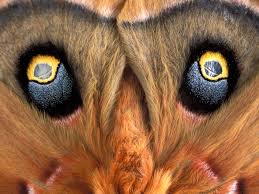Free Wallpapers For Pc Biography
Benin is a country in West Africa. It is bordered by Togo to the west, by Nigeria to the east and by Burkina Faso and Niger to the north. A majority of the population live on its small southern coastline on the Bight of Benin. The capital of Benin is Porto-Novo, but the seat of government is in Cotonou, the country's largest city. Benin covers an area of approximately 110,000 square kilometers (42,000 sq mi), with a population of approximately 9.05 million. Benin is a tropical, sub-Saharan nation, highly dependent on agriculture, with substantial employment and income arising from subsistence farming.
The official language of Benin is French, however, indigenous languages such as Fon and Yoruba are commonly spoken. The largest religious group in Benin is Roman Catholicism, followed closely by Islam, Vodun and Protestantism. Benin is a member of the United Nations, the African Union, the Organisation of Islamic Cooperation, South Atlantic Peace and Cooperation Zone, La Francophonie, the Community of Sahel-Saharan States, the African Petroleum Producers Association and the Niger Basin Authority.
From the 17th to the 19th century, modern day Benin was ruled by the Kingdom of Dahomey. This region was referred to as the Slave Coast from as early as the 17th century due to the large number of slaves shipped to the New World during the Trans-Atlantic slave trade. After slavery was abolished, France took over the country and renamed it French Dahomey. In 1960, Dahomey gained full independence from France, bringing in a democratic government for the next 12 years.
A Marxist-Leninist dictatorship called the People's Republic of Benin existed between 1972 and 1990. This regime led to repression and the collapse of the economy. The Republic of Benin was formed in 1991 which brought in multiparty elections.
During the colonial period and at independence, the country was known as Dahomey. It was renamed on November 30, 1975, to Benin [8] after the body of water on which the country lies – the Bight of Benin – which, in turn, had been named after the Benin Empire. The country of Benin has no direct connection to Benin City in modern Nigeria, nor to the Benin bronzes.
The new name, Benin, was chosen for its neutrality. Dahomey was the name of the former Kingdom of Dahomey, which covered only the southern third of the present country and therefore did not represent the northwestern sector Atakora nor the kingdom of Borgu, which covered the northeastern third.The Kingdom of Dahomey formed from a mixture of ethnic groups on the Abomey plain. Historians theorize that the insecurity caused by slave trading may have contributed to mass migrations of groups to modern day Abomey, including some Aja, a Gbe people who are believed to have founded the city.Those Aja living in Abomey mingled with the local Fon people, also a Gbe people, creating a new ethnic group known as "Dahomey.The Gbe peoples are said to be descendents of a number of migrants from Wyo. Gangnihessou (a member of an Aja dynasty that in the 16th century along with the Aja populace had come from Tado before settling and ruling separately in what is now Abomey, Allada, and Porto Novo) became the first ruler of the Dahomey Kingdom.Dahomey had a military culture aimed at securing and eventually expanding the borders of the small kingdom with its capital at modern day Abomey.The Dahomey Kingdom was known for its culture and traditions. Young boys were often apprenticed to older soldiers, and taught the kingdom's military customs until they were old enough to join the armyDahomey was also famous for instituting an elite female soldier corps, called Ahosi or "our mothers" in the Fongbe language, and known by many Europeans as the Dahomean Amazons. This emphasis on military preparation and achievement earned Dahomey the nickname of "black Sparta" from European observers and 19th century explorers like Sir Richard Burton.








Benin is a country in West Africa. It is bordered by Togo to the west, by Nigeria to the east and by Burkina Faso and Niger to the north. A majority of the population live on its small southern coastline on the Bight of Benin. The capital of Benin is Porto-Novo, but the seat of government is in Cotonou, the country's largest city. Benin covers an area of approximately 110,000 square kilometers (42,000 sq mi), with a population of approximately 9.05 million. Benin is a tropical, sub-Saharan nation, highly dependent on agriculture, with substantial employment and income arising from subsistence farming.
The official language of Benin is French, however, indigenous languages such as Fon and Yoruba are commonly spoken. The largest religious group in Benin is Roman Catholicism, followed closely by Islam, Vodun and Protestantism. Benin is a member of the United Nations, the African Union, the Organisation of Islamic Cooperation, South Atlantic Peace and Cooperation Zone, La Francophonie, the Community of Sahel-Saharan States, the African Petroleum Producers Association and the Niger Basin Authority.
From the 17th to the 19th century, modern day Benin was ruled by the Kingdom of Dahomey. This region was referred to as the Slave Coast from as early as the 17th century due to the large number of slaves shipped to the New World during the Trans-Atlantic slave trade. After slavery was abolished, France took over the country and renamed it French Dahomey. In 1960, Dahomey gained full independence from France, bringing in a democratic government for the next 12 years.
A Marxist-Leninist dictatorship called the People's Republic of Benin existed between 1972 and 1990. This regime led to repression and the collapse of the economy. The Republic of Benin was formed in 1991 which brought in multiparty elections.
During the colonial period and at independence, the country was known as Dahomey. It was renamed on November 30, 1975, to Benin [8] after the body of water on which the country lies – the Bight of Benin – which, in turn, had been named after the Benin Empire. The country of Benin has no direct connection to Benin City in modern Nigeria, nor to the Benin bronzes.
The new name, Benin, was chosen for its neutrality. Dahomey was the name of the former Kingdom of Dahomey, which covered only the southern third of the present country and therefore did not represent the northwestern sector Atakora nor the kingdom of Borgu, which covered the northeastern third.The Kingdom of Dahomey formed from a mixture of ethnic groups on the Abomey plain. Historians theorize that the insecurity caused by slave trading may have contributed to mass migrations of groups to modern day Abomey, including some Aja, a Gbe people who are believed to have founded the city.Those Aja living in Abomey mingled with the local Fon people, also a Gbe people, creating a new ethnic group known as "Dahomey.The Gbe peoples are said to be descendents of a number of migrants from Wyo. Gangnihessou (a member of an Aja dynasty that in the 16th century along with the Aja populace had come from Tado before settling and ruling separately in what is now Abomey, Allada, and Porto Novo) became the first ruler of the Dahomey Kingdom.Dahomey had a military culture aimed at securing and eventually expanding the borders of the small kingdom with its capital at modern day Abomey.The Dahomey Kingdom was known for its culture and traditions. Young boys were often apprenticed to older soldiers, and taught the kingdom's military customs until they were old enough to join the armyDahomey was also famous for instituting an elite female soldier corps, called Ahosi or "our mothers" in the Fongbe language, and known by many Europeans as the Dahomean Amazons. This emphasis on military preparation and achievement earned Dahomey the nickname of "black Sparta" from European observers and 19th century explorers like Sir Richard Burton.
Free Wallpapers For Pc
Free Wallpapers For Pc
Free Wallpapers For Pc
Free Wallpapers For Pc
Free Wallpapers For Pc
Free Wallpapers For Pc
Free Wallpapers For Pc
Free Wallpapers For Pc
Free Wallpapers For Pc
Exclusive! Download Free Wallpapers Pc And Psp
How To Get Free Wallpapers On Mac / Pc
No comments:
Post a Comment